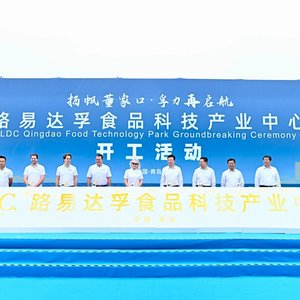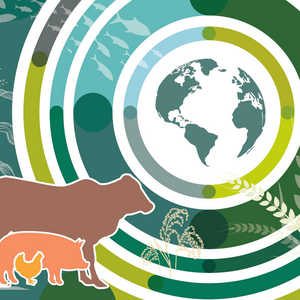Speaking on behalf of the Honourable Keith Ashfield, Minister of Fisheries and Oceans, Parliamentary Secretary Randy Kamp, announced significant funding to support innovation and sustainability in the aquaculture industry in British Columbia.
"Our government is committed to enhancing the global competitiveness, productivity and environmental performance of Canada's aquaculture industry," said Mr. Kamp. "We are pleased to help keep the B.C. economy strong by supporting these promising new commercial innovations. Canada has the potential to become a world leader in aquaculture with our extensive coastlines, an international reputation for safe, high-quality fish and seafood products, a skilled workforce and strong management expertise."
The federal funding provided through the Aquaculture Innovation and Market Access Program (AIMAP) is supporting three finfish and five shellfish aquaculture projects in B.C. These projects are designed to help the industry expand its market potential through new technologies for use in the B.C. aquaculture industry.
The companies receiving project funding include: Target Marine Hatcheries (Sechelt), Sablefish Canada (Salt Spring Island), West Coast Fish Culture (Lois Lake), Island Sea Farms (Salt Spring Island), Little Wing Oysters (Powell River), Island Scallops (Qualicum Beach), as well as the Coastal Shellfish Corporation, which is leading projects on behalf of the Heiltsuk First Nation and the Metlakatla First Nation.
Nationally, aquaculture production has increased four-fold in the past 20 years. Approximately 70 per cent of all Canadian aquaculture products are sold to foreign markets, and the world now depends on aquaculture as an essential source of nutrition. In fact, globally, half of all fish and seafood is now farmed.
"As Canada's aquaculture industry continues to grow, it brings economic and social benefits to our country," said Mr. Kamp. "Our government is ensuring that this industry has the support it needs to expand in an environmentally responsible and sustainable way."
PACIFIC REGION 2011 AIMAP FUNDED PROJECTS
Eight projects in British Columbia have received close to $1 million ($975,900) in funding from Fisheries and Oceans Canada through the Aquaculture Innovation and Market Access Program (AIMAP).
FINFISH
•Target Marine Hatcheries, located in Sechelt, has received $49,900 in AIMAP funding to purchase animal handling and transportation equipment for the commercialization of farmed sturgeon caviar for domestic and international sales. An additional $55,900 has been raised for this project.
•Sablefish Canada, located on Salt Spring Island, has received $200,000 in AIMAP funding to build a marine hatchery water conditioning module. The module is intended to improve juvenile sablefish quality and enhance the site's environmental performance by reducing carbon emissions and energy needs. Sablefish Canada has raised an additional $706,000 from various sources for this project.
•West Coast Fish Culture, located in Lois Lake, B.C., has received $155,000 in AIMAP funding to develop technology to demonstrate the environmental and economic benefits of commercial fish-waste recycling. The project involves producing fish oil nutrition supplements and organic soil supplements for the marketplace. In addition to AIMAP funding, other investors have contributed nearly $492,000 to this project.
SHELLFISH
•Island Sea Farms, on Salt Spring Island, has received $205,000 in AIMAP funding to build and commercialize an innovative commercial-scale modular mussel hatchery. The testing of seed from this hatchery will involve the Klahoose First Nation. The hatchery design uses green technologies that reduce energy requirements and improve environmental performance. Approximately $585,000 has been raised for this project in addition to AIMAP funding.
•Little Wing Oysters in Powell River has received $55,000 in AIMAP funding to develop a mobile floating seed sorter and handling system for oysters. This project is specifically targeted at the small farm operation, with a goal of assisting with mechanization to improve farm efficiency. Little Wing Oysters has obtained more than $71,000 from other sources for this project.
•The Coastal Shellfish Corporation, on behalf of the Heiltsuk First Nation, has received a total of $185,000 in AIMAP funding for two projects: 1) to acquire and install a live-holding system for the harvest and transport of farmed scallops, and 2) to install mechanical equipment to handle scallop farming gear and improve productivity. Approximately $381,500 has been raised for these projects.
•Another scallop project, being managed by the Coastal Shellfish Corporation on behalf of the Metlakatla First Nation, has received $101,000 in AIMAP funding to purchase an innovative spiral anchoring system, with the intent of decreasing scallop farming production costs. More than $228,000 in additional funds have been raised to complete this project.
•Island Scallops, operating out of Qualicum Beach, has received $25,000 in AIMAP funding to design, construct and test the efficiency of new larger lantern scallop nets. The intent of this project is to increase production on their farms without increasing the size of the farm site. An additional $15,000 has been raised for this project.










